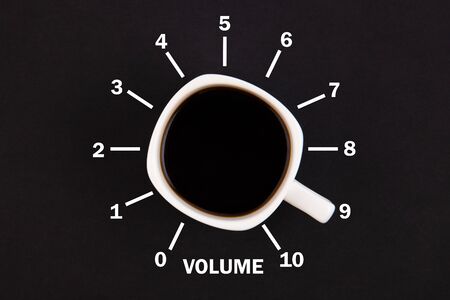Introduction: Coffee Culture Meets Intermittent Fasting
In the United States, coffee is more than just a beverage—it’s a daily ritual and a cornerstone of social life, powering busy mornings and fueling productivity. At the same time, intermittent fasting (IF) has surged in popularity, with many Americans adopting this eating pattern to support weight management, metabolic health, and overall wellness. As both trends continue to thrive, it’s no surprise that people are increasingly interested in how their morning cup of joe fits into an intermittent fasting lifestyle. Can you enjoy coffee without breaking your fast? Does it help or hinder the benefits of fasting? This article explores the science behind drinking coffee while intermittent fasting, unraveling why so many are curious about combining these two cultural phenomena.
2. How Coffee Impacts Fasting Physiology
When it comes to intermittent fasting, black coffee has a unique role in shaping the bodys physiological responses. Let’s explore the scientific mechanisms through which coffee affects metabolism, autophagy, and hormone regulation during the fasting window.
Metabolic Effects of Black Coffee During Fasting
Black coffee is virtually calorie-free, which means it doesn’t disrupt the fasted state for most people. The primary active compound, caffeine, stimulates the central nervous system and increases metabolic rate. This can enhance fat oxidation, making it easier for the body to use stored fat for energy while fasting. Additionally, coffee contains polyphenols that may support cellular health and contribute to metabolic benefits.
| Effect | How Coffee Influences | Potential Benefit While Fasting |
|---|---|---|
| Metabolism | Caffeine boosts thermogenesis and fat breakdown | Increased energy expenditure; enhanced fat burning |
| Appetite Control | Coffee can suppress hunger hormones like ghrelin | Easier adherence to fasting windows |
| Insulin Sensitivity | Coffee may improve insulin action short-term | Better blood sugar management during fasts |
The Role of Coffee in Autophagy
Autophagy is the cellular “self-cleaning” process that ramps up during fasting. Emerging research suggests certain compounds in black coffee—such as polyphenols—may enhance autophagic activity. Although more human studies are needed, animal models show that coffee consumption can activate pathways related to cell renewal and protection against oxidative stress. This means your morning brew could theoretically support some of the same longevity-promoting effects associated with fasting itself.
Coffee’s Influence on Hormones During Fasting Windows
Caffeine affects several key hormones that regulate energy balance and alertness:
- Cortisol: Caffeine can temporarily increase cortisol, a hormone involved in energy mobilization. Moderate rises are generally not harmful for healthy adults and may even promote alertness without breaking your fast.
- Adrenaline: Black coffee spikes adrenaline (epinephrine), further supporting fat breakdown and mental sharpness—both beneficial during a fasted state.
- Insulin: Black coffee alone does not spike insulin significantly, helping maintain low circulating insulin levels crucial for effective intermittent fasting.
Key Takeaway: Science-Backed Support for Black Coffee While Fasting
The combination of increased metabolism, enhanced autophagy potential, and favorable hormonal shifts makes black coffee a science-backed ally for many Americans practicing intermittent fasting. However, individual tolerance varies—so listen to your body and consult with a healthcare provider if you have concerns about caffeine or underlying health conditions.

3. Does Coffee Break a Fast? Understanding the Debate
The question of whether coffee breaks a fast is one of the most hotly debated topics among intermittent fasting enthusiasts and health experts alike. At its core, the scientific argument revolves around how coffee interacts with the body’s fasting state on a biochemical level. Traditionally, fasting means abstaining from all caloric intake, so anything that introduces calories—like cream or sugar in coffee—would technically end a fast. However, black coffee contains minimal calories (typically 2–5 per cup) and no significant amounts of protein, fat, or carbohydrates that would spike insulin levels or shift the body out of ketosis.
Many researchers and nutritionists argue that plain black coffee does not substantially impact metabolic processes central to fasting, such as autophagy (the body’s cellular “clean-up” process) or fat oxidation. Dr. Jason Fung, a well-known fasting expert in the United States, has stated that black coffee can actually support fasting by suppressing appetite and increasing alertness, making it easier for many Americans to adhere to their fasting windows. On the other hand, some purists believe that any ingestion outside of water technically interrupts a true fast, regardless of caloric content.
Culturally, American coffee culture often centers around enjoying a morning cup as part of daily rituals—even when fasting. This practical approach is echoed by many U.S.-based dietitians who suggest that moderate consumption of black coffee during fasting is unlikely to negate the benefits and may even enhance adherence to intermittent fasting routines. Ultimately, whether coffee “breaks” a fast depends on your personal goals: if you’re focused on weight loss and metabolic health, black coffee is generally considered safe during fasting; if you’re pursuing strict autophagy or spiritual reasons for fasting, you may choose to stick with water only.
4. Benefits and Possible Drawbacks of Drinking Coffee While Fasting
Drinking coffee during intermittent fasting is a popular practice, especially in the U.S., where both coffee culture and health trends thrive. But how does this habit impact your fasting experience? Let’s break down what current scientific research says about the benefits and potential drawbacks.
Potential Benefits of Coffee During Fasting
Coffee is more than just a morning ritual—it can offer real advantages when paired with intermittent fasting. Here’s what science has uncovered:
| Benefit | Scientific Insight |
|---|---|
| Appetite Suppression | Caffeine may help reduce hunger hormones (like ghrelin), making it easier to stick to your fasting window without feeling deprived. |
| Improved Mental Clarity | Coffee stimulates the central nervous system, potentially enhancing focus, alertness, and cognitive function—key for productivity during fasting hours. |
| Metabolic Boost | Studies suggest caffeine can slightly increase metabolic rate, which might support fat burning while in a fasted state. |
Possible Downsides of Coffee While Fasting
Despite its perks, coffee isn’t for everyone—and even fans should watch for these issues:
| Drawback | Scientific Insight |
|---|---|
| Sleep Disturbance | Caffeine has a long half-life; drinking coffee late in your fasting period can disrupt sleep quality and duration, which undermines health goals. |
| Anxiety or Jitters | Some people are sensitive to caffeine and may experience increased anxiety, heart palpitations, or irritability—especially if consuming coffee on an empty stomach. |
Who Should Be Cautious?
If you’re prone to anxiety disorders, have trouble sleeping, or have underlying heart conditions, it’s wise to limit your coffee intake or consult with a healthcare provider before mixing coffee with intermittent fasting.
Moderation Is Key
The general consensus among U.S. health professionals is that up to 400mg of caffeine per day (about four 8-ounce cups of brewed coffee) is considered safe for most adults. However, individual tolerance varies, so listen to your body and adjust as needed for optimal results during your fast.
5. Best Practices: How to Make Coffee Work With Your Fast
Mastering the art of drinking coffee during intermittent fasting in America involves more than just brewing your favorite cup. To keep your coffee truly fast-friendly and maximize its metabolic benefits, it’s essential to make mindful choices about what you add—and what you don’t. Here are science-backed tips and cultural insights to help you personalize your coffee routine without breaking your fast.
Stick to Black Coffee
To avoid triggering an insulin response or breaking your fast, opt for black coffee—no sugar, no cream. Black coffee is virtually calorie-free and will not interfere with autophagy or fat burning. If plain black coffee feels too bitter, consider a high-quality, freshly ground bean for a smoother taste profile that American coffee lovers appreciate.
What to Avoid
- Sugar and Sweetened Creamers: Even small amounts of sugar or flavored creamers can spike blood glucose and end your fasting state.
- MCT Oil and Butter (Bulletproof Coffee): While popular in some keto circles, adding fats technically introduces calories that may interrupt certain fasting benefits like autophagy—even though they won’t spike insulin much.
- Artificial Sweeteners: The science is mixed, but some studies suggest that artificial sweeteners might trigger cravings or minimal insulin responses. If you crave sweetness, try a sprinkle of cinnamon instead—a common American hack for flavor without calories.
Personalize Your Routine
- Brew Methods: Whether you prefer a classic drip brew, cold brew, or espresso shot, all are acceptable as long as nothing caloric is added. Cold brew is increasingly popular in the U.S. due to its smooth flavor and lower acidity.
- Caffeine Sensitivity: If you’re sensitive to caffeine, try limiting consumption to the morning hours to avoid disrupting sleep cycles—a key component of metabolic health.
Cultural Tips for the American Palette
Americans love variety—don’t be afraid to experiment with different single-origin beans or sustainable roasts from local coffee shops (just skip the syrups and milk). Iced black coffee can be refreshing during summer fasts, while a hot Americano offers warmth on colder mornings.
Final Thought
By making these smart adjustments, you can enjoy your daily ritual of coffee while supporting your intermittent fasting goals—and savoring the diverse flavors America’s coffee culture has to offer.
6. Expert and Community Perspectives
When it comes to drinking coffee while intermittent fasting, opinions among U.S. experts and the fasting community are diverse yet grounded in both scientific evidence and personal experience. According to registered dietitians like Dr. Lisa Moskovitz, CEO of NY Nutrition Group, black coffee is generally considered acceptable during fasting periods because it contains minimal calories and does not significantly disrupt metabolic benefits. Many physicians echo this view, pointing out that moderate consumption of unsweetened coffee can help curb appetite, boost alertness, and make fasting periods more manageable without breaking the fast.
From a clinical perspective, Dr. Jason Fung, a leading nephrologist and author on intermittent fasting, emphasizes that black coffee may even enhance some fasting effects by promoting fat oxidation and autophagy. However, he cautions against adding sugar, milk, or high-calorie creamers, as these additions can spike insulin levels and negate fasting benefits.
The American intermittent fasting community—active on platforms like Reddit’s r/intermittentfasting and various Facebook groups—frequently shares anecdotal reports of improved energy levels and focus with morning coffee intake. Many users recommend starting with small amounts to assess tolerance, especially for those sensitive to caffeine or prone to digestive discomfort.
Some nutritionists suggest experimenting with timing: enjoying coffee early in the fasted state may provide mental clarity without interfering with sleep later in the day. They also advise staying hydrated with water alongside coffee to prevent dehydration—a common concern when consuming caffeinated beverages during extended fasts.
In summary, expert consensus in the U.S. suggests that black coffee is largely compatible with intermittent fasting protocols and may even offer supportive benefits. Still, personalization is key; individuals are encouraged to listen to their bodies and consult healthcare professionals if they have underlying health conditions or specific concerns about caffeine intake during fasting.


